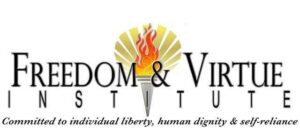“To thrive, democratic societies require a vision for the purpose of our shared life. The answer for those of us in the West is that human dignity and flourishing—personal, social, cultural, and economic—has been the central purpose of human community and its political order.” This is the central point of a recent piece at Law & Liberty by Brent Orrell. Orrell’s essay might be considered rudimentary in the sense that it doesn’t break any new ground, but rudimentary can be exactly what is needed when basic principles have been forgotten.
The polarization of American politics and culture and the breakdown of civil discourse in favor of polemics and violence have been much discussed. Whether these problems are worse, much worse, or not worse than the norm in American history remains debatable, but no matter where one comes down on that question, such dysfunction should still be cause for concern. A civilized, stable political order is always in danger of sliding into anarchy and chaos. It requires constant vigilance and effort to preserve a free and virtuous society. What can be done to increase civil peace and concord is always a question worth asking.

Photo: Courtesy of Twitter
Orrell is obviously searching for some common ground in the midst of the current discord, and he is right to point to commitment to the dignity of the person as the key. He is well aware that there is debate about the meanings and sources of dignity, and that some diversity on these issues will remain. Christians, Buddhists, and agnostics will have different definitions and will point to different locations to find a sure grounding for dignity. But conviction about certain tenets of dignity have been common, if not universal, in western societies, and these, Orrell insists, cannot be cast off without irreparable damage. “We cannot turn other human beings into instruments of our own will or desires and still honor their dignity,” is one such tenet. Another: “We are prohibited by conscience and law from coercing or injuring other persons in our pursuit of human dignity. The human person is his or her own final good and end.” And finally: “We cannot subordinate and violate the good of one person as the means of achieving either our own good or, even worse, the good of the much vaguer concept of ‘society.’”
Christian theology supports these precepts. The Catholic Church’s Compendium of Social Doctrine places human dignity at the center of social life. “A just society can become a reality only when it is based on the respect of the transcendent dignity of the human person. The person represents the ultimate end of society, by which it is ordered to the person (no. 132).” Most Christian traditions find human dignity rooted in the creation of persons in the image of God. One of the pledges of the National Association of Evangelicals’ 2017 Justice Declaration is, “Treat every human being as a person made in God’s own image, with a life worthy of respect, protection, and care.”
The commitment to human dignity, like every other moral obligation, is tested when honoring that commitment is difficult. Opponents in the culture wars, in the political arena, and in the everyday disputes of family and community life possess intrinsic dignity and deserve to be treated accordingly. Every genocide, holocaust, and crime against humanity begins with efforts—sometimes subtle, sometimes blatant—to undermine the inherent dignity of some group, to suggest that they are not deserving of the rights that are accorded to those who are “fully human.” That’s a dangerous road, and we should avoid taking even one step down it.


